Ansible Training
Hope Tutors is one of the leading Ansible training institutes in Chennai. We offer advanced Ansible course materials from industry experts at economical prices. We use state of the art facilities to provide you with the finest Ansible training in Chennai. Keeping your interests in mind, we provide you with the opportunity of choosing between a classroom setup or online sessions to deliver our teachings.
Introduction to Ansible
Ansible is an example of a software which is open source. It helps us to automate the deployment of applications, provisioning of software, and configuration management. We can connect Ansible through remotePowerShell, SSH, or through other remote APIs.
Ansible Facts and Figures
| Original Author | Michael DeHaan |
| Developer | Ansible Community/Ansible Inc./Red Hat Inc. |
| Initial Release | 20.02.2012 |
| Stable Release | Ver 2.7.1 / 25.10.2018 |
| Preview Release | Ver 2.7.Orc4 / 28.09.2018 |
| Repository | Github.com/ansible |
| Programming Languages used | Python, PowerShell, Shell, Ruby |
| Operating System | Linux, Unix-like, MacOS, Windows |
| Available in | English |
| Type of Software | Infrastructure as Code, Configuration Management, and Intra-service Orchestration Engine |
| License | Proprietary/GNU General/Public License |
| Website | www.ansible.com |
Ansible is a very effective IT automation engine. It helps us to automate many IT requirements. With Ansible the possibility of inter-relating all your systems is not a distant dream anymore. Since the day Ansible was conceived, it was designed for multi-tier deployments. Ansible automates provisioning of cloud, managing configurations, deployment of applications, orchestration of numerous services, and many other IT needs. It provides us with the option of managing multiple systems at any given point in time. There is no need for any agents and no extra customizable security infrastructure. It is extremely easy to deploy and uses YAML language in the nature of Ansible Playbooks. YAML is a very simple language which allows us to explain the automation jobs we need in a simple manner.
Robust Architecture
The way Ansible functions is by connecting to your nodes. It then dispatches compact programs, called “Ansible modules” to these nodes. Ansible writes these programs so that they can be resource idols of the required state of the machine. After doing so, Ansible continues to execute these modules on top of SSH by default. Ansible then removes them on finishing.
The module library we create can stay on any system. There is no requirement for any servers, databases, or daemons. Normally an individual will work with their most preferred terminal program, a text editor. In addition, they will also work with a version control system to keep an eye out for alterations in their content.
SSH Keys – The friend you need
In Ansible the passwords are normally supported. However, SSH keys which have the ssh-agent are the most preferred way to utilize Ansible. At the same point of time, if an individual wants to use Kerberos, he or she can use that too. There is a multitude of options. There is no requirement of Root logins. An individual can log in as any user, and then su or sudo to any user of Ansible.
The “authorized_key” module of Ansible is a very effective tool to use Ansible to conduct what machines can access what hosts. We can also use other options like identity management systems or Kerberos.
Use Text Files to Manage Your Inventory
Ansible uses a very simple INI file by default to represent what machines it manages. This INI file categorizes your managed machines in groups of your own preference.
If we want to add new machines, there is no requirement for any extra SSL signing server. As a result, there is no problem in deciding why a specific system is not linking up due to doubtful DNS or NTP hindrances.
In the event of another source of truth existing in your structure, Ansible is equipped to plugin to that like group, obtaining inventory, and variable data from places like OpenStack, EC2, Rackspace, and much more.
Playbooks: An effective and reliable Language for automation
The most interesting characteristic of Ansible is Playbooks. We use Playbooks to efficiently orchestrate numerous portions of your infrastructure geography, including accurate control over the number of machines to handle at any point in time.
Ansible always believes in optimized simplicity. The makers at Ansible want the automation code to be precise and meaningful years down the road. They want it to be simple, and something of value. There is no requirement to remember about features or special syntax.
The Ansible documentation has more insight about Playbooks. An individual can do a LOT more including:
- We can take machines in and out of monitoring windows and load balancers.
- We can make one server aware of the IP addresses of all the others utilizing information obtained about those specific servers – and utilize those to build dynamic configuration files.
- We can allocate certain variables and prompt for others. We can also allot defaults in the case of them not being set.
- We can use the outcome of one command to agree whether or not to run another
Extending Ansible: Modules, Plugins, and API
The advantage of Ansible modules is that we can write it any language that gives back JSON (bash, Ruby, Python, etc). We can also plug in inventory to any datasource. We can do so by writing a program that communicates with the datasource and gives back JSON. There are a number of Python APIs to extend the connection types of Ansible, callbacks, and also to add new server-side behaviors.
Benefits of Ansible
- Time-saving and productive.
- Elimination of repetitive labor intensive jobs.
- Lesser errors and mistakes.
- Boost collaboration between teams.
- Improved Job Satisfaction.
- Overcome complex tasks easily.
- Better innovation-oriented resources
- Improved accountability and agility
Ansible for DevOps
Ansible believes in simple IT Automation and smart DevOps practices for different organizations. Ansible is extremely easy to adopt, efficient to use, and simple to understand. It was created keeping in mind how people work and the way they work together spanning the entirety of the organization.
| Criteria | Dev | Ops | Security | Business |
|---|---|---|---|---|
| Challenge | Giving more focus on tooling necessary to dispatch capabilities rather than focusing time on results | The requirement of technology to be used across numerous groups with varied skill sets | To effectively and accurately track changes when and where | Swifter marketing |
| Need | To counter and scale in demand keeping pace intact | To centrally manage and control different workloads and systems | Lessen threat of human errors | Creation of Goodwill and competitive advantage |
| How enabling Ansible Automation helps | 1. Helps to accelerate feedback loop. 2. Locate bugs faster. 3. The lesser threat of tribal knowledge. 4. Swifter, organized, and more resilient deployments. |
1. Lessen shadow IT. 2. Lessen deployment time. 3. Provision machines swifter. 4. The lesser threat of tribal knowledge. 5. Automated patching deployment. |
1. Create similar Prod, Dev, and QA environments for swifter, organized, and resilient deployments. 2. Create security guidelines. 3. Improve transparency and visibility for compliance necessities. 4. Let go of the pressures of traditional paperwork by producing alive, testable documentation. |
1. Synchronize IT with the business. 2. Obtain more time for strategic innovations. 3. Reduce costs while hiring new team members. 4. Improved cross-team union. |
Ansible Course Brief
Our Ansible course in Chennai will empower you to expand your knowledge-base in the IT Automation Industry Revolution.
What will you learn in our Ansible training course in Chennai?
Getting started
- Configuration Management – A mandatory aspect of any DevOps team
- Advantages and Disadvantages of Ansible
- Web Scale
- Differences between Ansible and CM tools (Puppet, Chef)
- Ansible Terminology Basics
- Visualize your environments using Ansible and YML
Setting up
- Certain prerequisites
- Setting up Ansible on a MAC
- Setting up Ansible on Linux
- Setting up Ansible on Windows
- Using Vagrant to test
- Cloudformation Stack updates
- How to use SSH Keys to connect with your target nodes
- Learn about different Cloudformation wait conditions and wait condition handlers
- Custom Cloudformation resources
- AWS CLI/APIs and SDK
Inventory
- A Basic example of an Inventory
- Groups and Hosts
Ansible Playbooks
- Keep your Ansible Code coordinated using a useful directory structure
- Manage your Ansible Code using GIT
- Using playbook to configure and install NTP time synchronization
Provisioners
- Using DigitalOcean to connect Ansible to your favorite cloud provider
- How to create a new server instance
- Dynamic Inventory
- Dynamic Inventory on Amazon AWS
- How to mix dynamic and static inventory
Infrastructure with Ansible
- Inventory and host groups spec up
- Learning and using Roles
- How to configure database backend
- How to configure web server front-end
- How to configure a replicated filesystem
- How to configure centralized logging
Deploying Applications with Ansible
- Learn how to deploy your application from SCM to your local Vagrant environment
- How to deploy the code to production after testing by QA
- How to update your application
- Comparing Ansible and Capistrano and other alternatives
Ansible and Docker containers
- Important Basic Concepts and Introduction about Docker
- Synthesis of containers and automation
- How to build Docker containers using Ansible
- MySQL Containers
- Web application Containers
- Data storage containers
Continuous Integration and Testing
- Unit, Integration, and functional testing
- Use GitHub and Travis CI to automate your testing
Using Ansible in real-time
- How to use Ansible to automate CM and application pipelines through CI, release, deployment, and operations
- We’ll help to review your own environments and processes. We’ll evaluate and show you the best Ansible configuration management for your personal requirements.
Ansible Course Certification
The Ansible Certification Program enables and entitles you to develop and grow as an industry professional in today’s digital age.
1. Automation with Ansible 1 (DO407) Certification based on Red Hat®, Enterprise Linux® 7.3, and Ansible 2.3.
Course content summary
- How to troubleshoot and install Ansible on managed hosts and central nodes.
- How to use Ansible to run playbooks and ad-hoc commands to automate jobs.
- How to write useful Ansible Playbooks.
- How to safeguard encrypted data which we require for tasks with Ansible Vault.
- How to more easily manage enterprise Ansible deployments using Ansible Tower.
- How to function with Ansible in synthesis with Vagrant in a DevOps environment.
- Duration – 4 Days
- Expenditure – INR 54000 + Taxes or 11 Training Units
2. Red Hat Certificate of Expertise In Ansible Automation (EX407) Certification based on Red Hat®, Enterprise Linux® 7.3, and Ansible 2.3.
Course content summary
- Understanding the basic components of Ansible including Inventories, Modules, Variables, Facts, Plays, Playbooks, and Configuration Files.
- How to run Ansible ad-hoc commands.
- How do we define groups of hosts using both dynamic and static inventories.
- How to use an already existing dynamic inventory script.
- Learn how to create Ansible playbooks and plays
- How to use and create templates for customized configuration files.
- How to work with Ansible facts and variables.
- How to work with and create roles.
- Learn how to use roles downloaded from an Ansible Galaxy.
- How to manage parallelism.
- Safeguard important data using Ansible Vault in playbooks.
- Manage systems by installing an Ansible Tower
- Learn about different Ansible modules and commands.
- Duration – 4 Hours
- Expenditure – INR 15000 + Taxes or 3 Training Units
3. Automation with Ansible II: Red Hat Ansible Tower (DO409) Certification based on Ansible Tower 3, Ansible 2, and Red Hat Enterprise Linux® 7.
Course content summary
- Learn how to install Ansible Tower by Red Hat
- Use role-based access controls to configure teams and users to access Ansible Tower resources.
- Manage shared entry to machine credentials and inventories using Ansible Tower.
- Standardize playbook execution by creating workflow job templates and job templates.
- Use Ansible Tower to review and monitor job results to launch playbooks.
- Duration – 2 Days
- Expenditure – INR 27000 + Taxes or 6 Training Units
4. Ansible for Network Automation (DO457) Certification based on Red Hat® Ansible Engine 2.5 and Red Hat® Ansible Tower 3.2.
Course content summary
- How to configure and install Red Hat Ansible Automation on a management machine for Networking.
- How to run playbooks and ad-hoc commands to automate jobs using Ansible.
- Learn to effectively automate network by writing Ansible playbooks.
- Obtain information about network infrastructure, backup, and configuration.
- Learn to automate specific network administration cases. These include routing protocols, the configuration of routers and switches, SNMP monitoring, VLANs, and ports.
- Target devices from numerous hardware merchants, including Arista, Cisco, and Juniper using Ansible playbooks.
- Duration – 4 Days
- Expenditure – INR 54000 + Taxes or 11 Training Units
Key features of our Ansible Training Institute
100% real-time project training – We offer complete Ansible training in Chennai in the form of real-time projects and solutions. We will expose you to industry based real-time projects in multiple organizational platforms. You can rest assured that we won’t stop till you are satisfied.
Revised and up-to-date Ansible training methodology – Our Ansible course is revised and updated continuously depending on industry standards and changes in the field of Intelligent Automation. We follow the best Ansible training methodology coupled with the finest course materials. Our sessions are not only informative and knowledge-based but they are also fun and interactive.
Experienced Ansible trainers – Our Ansible trainers are experienced industry professionals with 8+ years of exposure to various tools and resources. We screen thousands of profiles before selecting the best instructor for you.
Focus on Individual Attention – We provide individual attention to our students with flexible schedules. We ensure that our batches have less than 5 members each, to offer a more personalized interaction and better knowledge transfer. One to one training is also provided on request.
Optimized Ansible Course fee-structure – We have optimized our fees to make sure that we don’t burn a hole in your pocket. We offer market-standard rates with the option of paying your fees in easy monthly installments.
100% Placement Guarantee – Our mock interviews will effectively prepare you to face your real job interviews. We provide services like resume preparation, placement assistance, and Ansible interview questions to sharpen your skills.
Ansible Training In Chennai with Placement
The vision of Hope Tutors is to see each and every individual get a job in a reputable organization. We want our candidates to reach new heights in their career. Placement is an integral part of our Ansible Training Institute in Chennai. We make sure that we provide assistance in whatever way we can. You just have to complete your Ansible course with us. Please take a look at the services we provide in relation to placement:
- Mock Interviews
- Placement oriented method of teaching
- Syllabus inclined Ansible Interview Questions
- Placement Assistance with Premier MNC’s
- Resume preparation
Why should you enroll with Hope Tutors over other Ansible Training Institutes in Chennai?
We want you to take an informed decision before joining any institute. The points mentioned below will help you to differentiate Hope Tutors from other Ansible Training Institutes in Chennai.
- 100% Professional Development – Our training will professionally prepare, develop, and upgrade you to prosper in the face of all obstacles. We provide services like resume preparation, placement assistance, and Ansible interview questions to sharpen your skills.
- Free Demo Sessions – Hope Tutors offers free demo-sessions before you decide to join our institute to professionally upgrade yourself. These cost-free demo sessions are arranged as per your request and according to the time you wish to set.
- Compact Batch Size – There is a saying that goes, “Too many cooks spoil the broth”. Similarly, we make sure that our batches do not exceed a maximum of five members each. This helps us to offer you a more personalized interaction from our end resulting in a better knowledge transfer.
- One to One Training – Hope Tutors provides one to one training on request to better help you with your specific needs. You just have to intimate us beforehand and we will do the needful for you.
- Alumni Enquiry – Hope Tutors provides you with the unique option of enquiring with the alumni of our institute regarding any doubts and queries that you might have. You can hear their experiences with Hope Tutors first hand, and then decide whether you want to join our institute or not.
- Flexible Timings and schedules – We take into consideration the different schedules of our candidates and fix the timings accordingly. We can adapt and be flexible according to your timings and requirements
So, what are you waiting for? Enroll with us, complete your Ansible Training Classes and upgrade yourself immediately.
Ansible Salary Trends
The Average salary of a Development Operations (DevOps) Engineer with Ansible skills in India is INR 8,46,509 with a minimum of 3-4 years of experience.
RELATED COURSES
CHEF Training in Chennai
PRIVATE 2378Devops Training in Chennai
PRIVATE 2GitHub Training in Chennai
PRIVATE 2570Jenkins Training in Chennai
PRIVATE 2604Maven Training in Chennai
PRIVATE 2780Nagios Training in Chennai
PRIVATE 2186Puppet Training in Chennai
PRIVATE 2614
Course Curriculum
| Routing | 00:00:00 | ||
| Bundling | 00:00:00 | ||
| Getting input Values from View | 00:00:00 | ||
| Pass manipulated values to View. | 00:00:00 | ||
| Different Kinds of ActionResult. | 00:00:00 | ||
| Passing Value from view to controller. | 00:00:00 | ||
| Passing value from controller to view | 00:00:00 | ||
| Cross Side Scripting | 00:00:00 | ||
| Paging | 00:00:00 | ||
| Introduction to Nuget | 00:00:00 | ||
| Basic walkthrough in MVC Template >>> MVC Internet Application. | 00:00:00 | ||
| Calling differnt ViewEngines in same Project | 00:00:00 | ||
| Usage of custom Validations after importing the moedl from database. | 00:00:00 | ||
| Repository Pattern | 00:00:00 | ||
| Unit of work | 00:00:00 | ||
| Difference between various MVC versions | 00:00:00 | ||
| Introduction to Models | 00:00:00 | ||
| Model Validation | 00:00:00 | ||
| Range Validation | 00:00:00 | ||
| String length validation | 00:00:00 | ||
| Error message display | 00:00:00 | ||
| Mapping Model Values in View. | 00:00:00 | ||
| Getting Model values in Controller | 00:00:00 | ||
| Adding validations to exising models. | 00:00:00 | ||
| Introduction | |||
| Why configuration management is a critical part of any DevOps team | 00:00:00 | ||
| Strengths and weaknesses of Ansible | 00:00:00 | ||
| Web scale | 00:00:00 | ||
| How Ansible is different from other CM tools like Chef and Puppet | 00:00:00 | ||
| Getting started with Ansible terminology | 00:00:00 | ||
| Ansible and YML for describing your environments | 00:00:00 | ||
| Getting set up | |||
| Some prerequisites | 00:00:00 | ||
| Getting set up on a Mac | 00:00:00 | ||
| Getting set up on Linux | 00:00:00 | ||
| Getting set up on Windows | 00:00:00 | ||
| Testing with Vagrant | 00:00:00 | ||
| Using SSH keys to connect to your target nodes | 00:00:00 | ||
| Inventory | |||
| Basic inventory example | 00:00:00 | ||
| Hosts and groups | 00:00:00 | ||
| Ansible Playbooks | |||
| A useful directory structure to keep your Ansible code organized | 00:00:00 | ||
| Using git to manage your Ansible code | 00:00:00 | ||
| A first look at a playbook to install and configure NTP time synchronization | 00:00:00 | ||
| Provisioners | |||
| Connecting Ansible to your preferred cloud provider (we’ll use DigitalOcean) | 00:00:00 | ||
| Creating a new server instance | 00:00:00 | ||
| Dynamic inventory | 00:00:00 | ||
| Dynamic inventory on Amazon AWS | 00:00:00 | ||
| Mixing static and dynamic inventory | 00:00:00 | ||
| Highly available infrastructure with Ansible | |||
| Spec up our inventory and host groups | 00:00:00 | ||
| Using roles | 00:00:00 | ||
| Configure our database backend | 00:00:00 | ||
| Configure our web server front-end | 00:00:00 | ||
| Configure a replicated filesystem | 00:00:00 | ||
| Configure centralized logging | 00:00:00 | ||
| Application deployments with Ansible | |||
| Deploying our app from SCM to our local Vagrant environment | 00:00:00 | ||
| How we would deploy that code to production once tested by QA | 00:00:00 | ||
| Updating our application | 00:00:00 | ||
| How Ansible compares to alternatives such as Capistrano | 00:00:00 | ||
| Docker containers with Ansible | |||
| Brief intro to Docker | 00:00:00 | ||
| The synergy of containerization and automation | 00:00:00 | ||
| Using Ansible to build Docker containers | 00:00:00 | ||
| MySQL containers | 00:00:00 | ||
| Web application containers | 00:00:00 | ||
| Data storage containers | 00:00:00 | ||
| Testing and continuous integration | |||
| Unit, integration and functional testing | 00:00:00 | ||
| Automating your testing using GitHub and Travis CI | 00:00:00 | ||
| Preparing for Ansible back at work | |||
| Real-world use case: Using Ansible to automate CM and application pipelines through continuous integration, release, deployment and operations | 00:00:00 | ||
| We’ll review your own environments and processes and evaluate how to best integrate Ansible’s configuration management for your own needs | 00:00:00 | ||
Features
FAQ
- Experienced MNC employees who has at least 8+ years of experience
- 3 Real-time Examples will be given to students
- 100 % Job assistance including resume preparation, mock up interviews
- No limit in attending interviews\n
- 100% real time project training
- Individual attention to students with flexible schedules
- Instalment options for fee payment
- Dedicated HR Person will be allocated for Placement Assistance.
- We tied up with more than 300+ companies and 50+ consultancy.
- More no of interviews will be scheduled after training program.
- Continuous job Assistance will be given even after the training program.
Kindly call or WhatsApp to +917871012233.
It will be vary from 30 to 50 hours.Depends on the candidate Years of experience.
We have successfully completed 4+ years. We placed more than 1000+ students
Yes First session is free of cost.You shall get the batch timings, duration of the course.
You Shall pay in two installments.EMI Option is also available
100% real time training.MNC Professionals will take the training classes
Yes each and every session will be recorded.You shall access the recorded sessions for lifetime.
Yes we are Pearson Vue Authorized Test Center.You shall write the international Certification in velachery branch.
Yes, we provide both weekdays and weekend sessions. You can attend the classes according to your convenience.

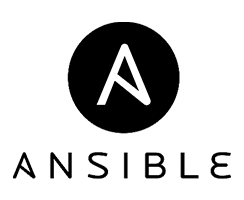
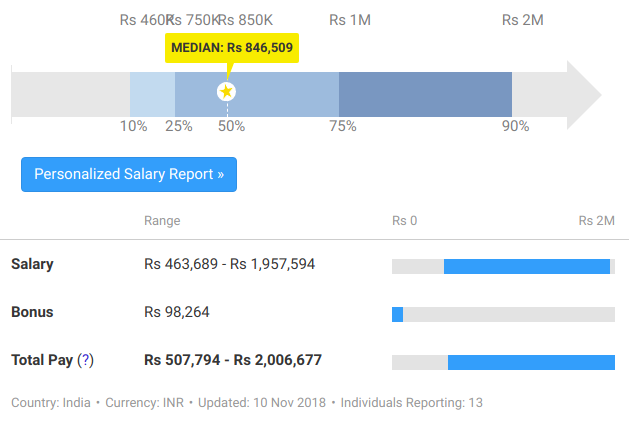

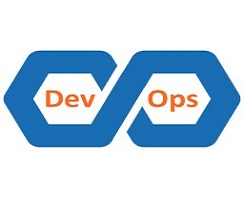
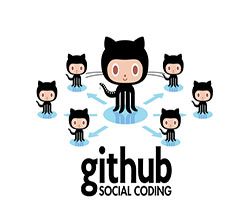



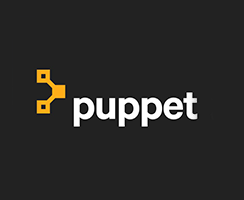
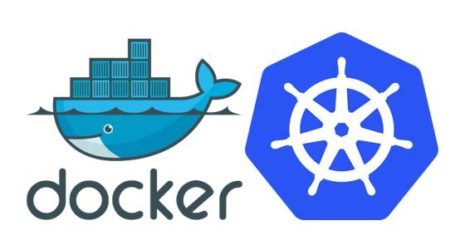

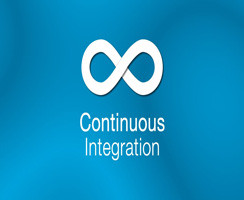

Ansible Training in Chennai
Hope Tutors is good and quality institute in Chennai, this institute provide well experienced trainer and have hands on experience. Thanks to Hope Tutors
Friendly Trainer in Ansible Training
Excellent online training institution, the trainer will explains each and every topic clearly and in depth concepts in Ansible, explanation with real-time example thanks to my trainer and the Hope Tutors.
Nice Institution
Hope Tutors is one of the best Training Institution in Chennai, I joined Ansible Training here and I append my knowledge through the DevOps concepts as well as Ansible. Thanks to Hope Tutors.
Ansible Training
Ansible trainer is good and very responsible management, they responds quickly and friendly manner, when ever i miss my Ansible Training the trainer recorded that sessions and forward to me. Thanks to my Trainer.
Real-time example with clear explanation
This is my personal opinion, I am happy to chose Hope Tutors for Ansible Training in chennai, the instructor having awesome knowledge in DevOps and also Ansible Tools, he explains the devops concepts very neat and clear. The training institute provide video materials. Now I am working as a DevOps admin in MNC Company with the help of Hope Tutors 100% Placement assistance, Thanks to Hope Tutors and my Trainer.
Thanks to my Ansible Training
It was nice experience with Hope Tutor Software Training Institution in Chennai. The Trainer was best in teaching and Hope Tutors provide convenient timing to me.Over all good thanks.
Hope Tutors have nice environment to learn
Quality: our training faculty trainers are experienced and they have brought real-time experiences into the class sessions. The Course progressed to its logical and every session built the foundation for the next session.
Nice to learn Ansible Training
Hope Tutor team is terrible, they have very experienced working professional Trainers and skillful team work. I joined Ansible Training here, they are in touch with each and every student for the smooth training and provide video recordings which is help full to us to remember the training sessions. Thanks to Hope Tutors.
Over all Good
Thanks to My Trainer and Hope Tutors…….